AN OAP falcon has fathered two chicks – despite being the age equivalent of an 80-year-old human.
The stud is 14 years old, two years more than the normal life expectancy of the species. And most falcons cease to be fertile around the age of 10 or 11.
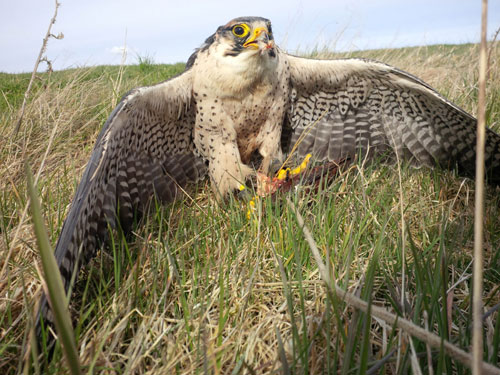
According to his owners, the elderly punter “still has plenty of lead in his pencil” even though in human terms he would “definitely be in a care home”.
The spritely bird fathered the chicks with an eight-year-old called Ruby.
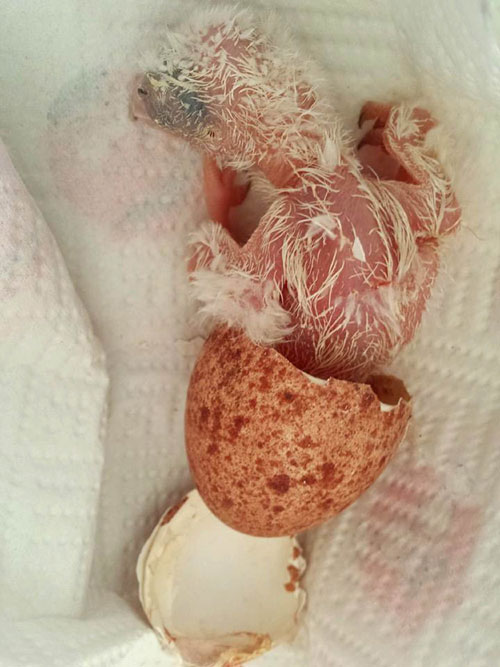
Ruby herself is quite the catch, as she is a “super rare” subspecies of Lanner falcon called a Faldeggi.
The chicks, who hatched within 48 hours of each other at Elite Falconry in Kirkcaldy, Fife, are “doing great” and have been put into an aviary with their parents.
A video taken by the owners shows one of them moving around inside the egg 12 days before they were due to hatch.
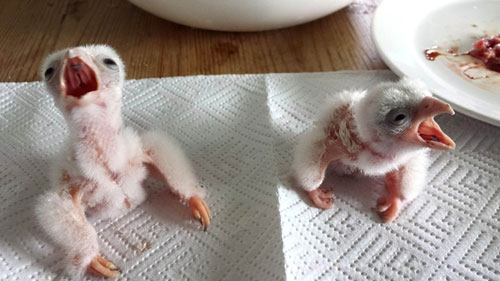
Owners Barry Blyther and Roxanne Peggie also managed to take pictures as the first chick hatched, showing a slightly bedraggled white bird emerging from its pink shell.
More snaps show the two chicks – believed to be male and female – cuddling up to each other on a blanket.
They have been feeding on 40 small mice a day each as they grow rapidly into large, intimidating birds of prey.
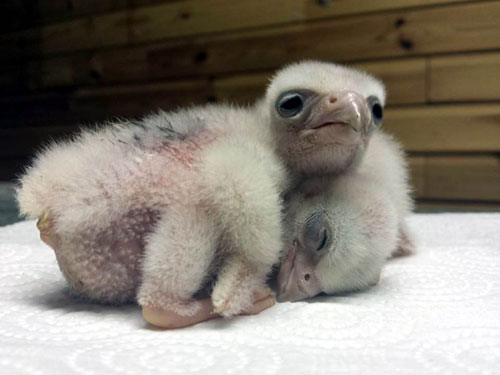
The pair will remain with their parents until they are roughly 11 weeks old and able to be independent.
Barry said: “Male Lanner falcons usually live to about 12 years old and lose their fertility a year or two before that.
“This guy is 14 and still has plenty of lead in his pencil, he’s doing great.
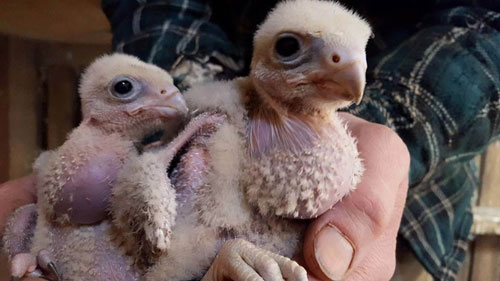
“In human years he would definitely be in a care home. There is a great demand for these birds so it’s brilliant he is still mating.
“We’re actually expecting another clutch of eggs from the mother in a few weeks, so there may be some more chicks on the way.”
Lanner falcons are one of the largest members of the falcon family. It is a powerful bird of prey which originates from Africa and has a wingspan that can reach over a metre wide.
The female usually lays three to four eggs at a time, though not all of them may be fertile.
